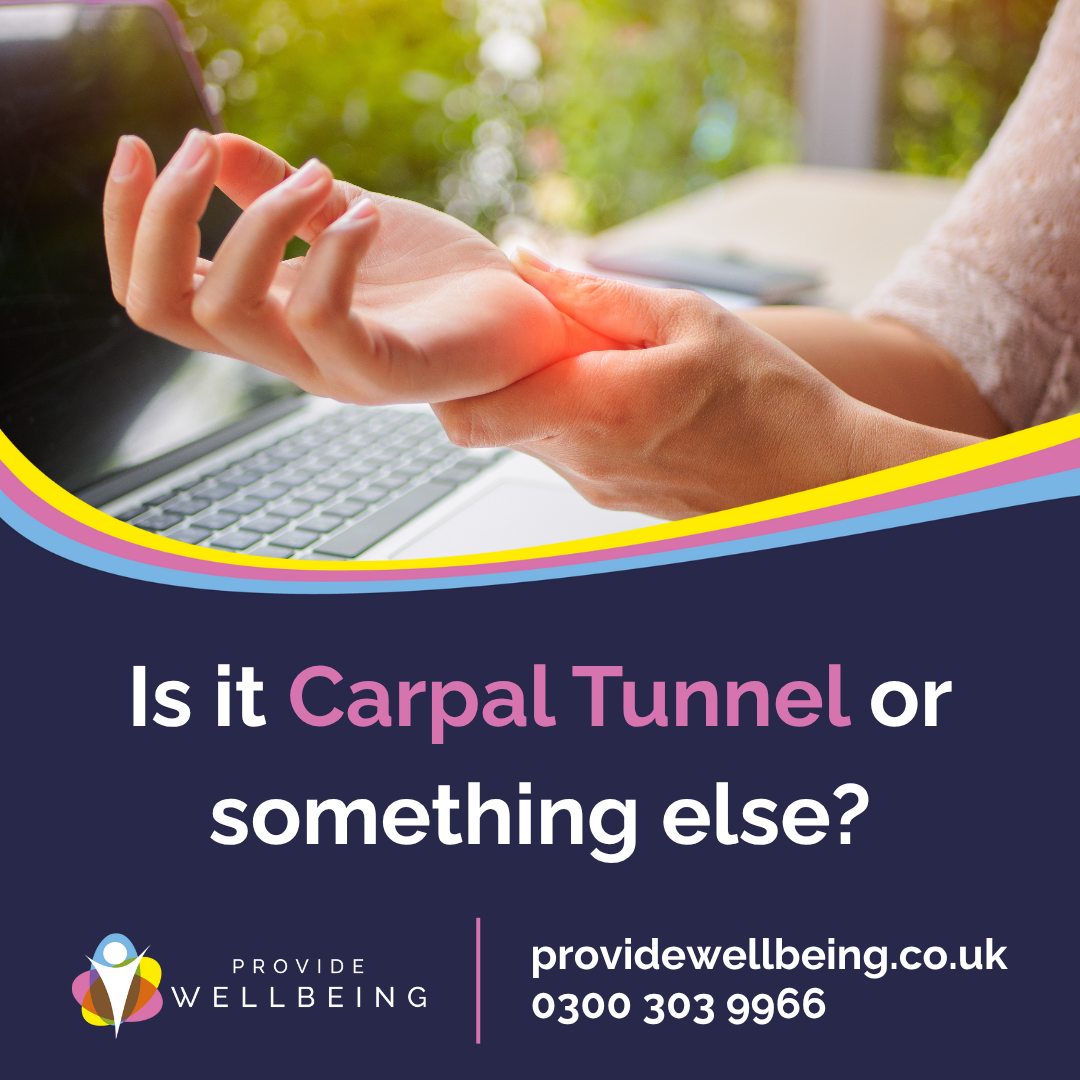Pins and needles in your hands, night-time tingling, or weakness when gripping everyday objects.
Many people assume these symptoms mean carpal tunnel syndrome (CTS).
But did you know that several other conditions can mimic CTS?
Knowing the difference is crucial, because effective treatment depends on an accurate diagnosis.
At Provide Wellbeing, our consultant-led carpal tunnel service helps patients get answers quickly, without the long NHS wait. Here’s how to spot the signs of CTS, what else could be causing your symptoms, and when to book a specialist assessment.
What is Carpal Tunnel Syndrome?
Carpal tunnel syndrome occurs when the median nerve, which runs through a narrow tunnel at the wrist, becomes compressed.
This can happen due to inflammation, swelling, or structural changes.
Common symptoms include:
- Numbness and tingling in the thumb, index and middle fingers (sometimes the ring finger too).
- Night-time waking with the need to “shake out” your hand – one of the most common ways CTS disrupts sleep.
- Weak grip or dropping objects.
- Pain radiating up into the forearm.
CTS is one of the most common nerve conditions in the hand, but it’s not the only possible explanation.
Conditions that Can Mimic CTS
- Neck (Cervical) nerve irritation
If a nerve is compressed in the neck, it can cause tingling, numbness or pain down the arm and into the hand. Unlike CTS, symptoms often worsen when turning or tilting the head. - Ulnar nerve compression
This affects the little finger and outer half of the ring finger, not the thumb, index and middle fingers. It often starts with elbow or wrist pressure. - Tendon problems and arthritis
Painful, swollen joints or tendon inflammation can cause stiffness and discomfort in the wrist and fingers, but typically without the same nerve-like tingling. - Circulation issues
Cold hands, colour changes or swelling may point to blood flow problems, rather than nerve compression.
When to Seek Help
Book a specialist consultation if:
- Symptoms are persistent and worsening.
- You’re waking frequently at night with tingling or numbness that disturbs your sleep.
- You’re struggling with grip or dropping objects.
- Symptoms affect both hands.
The earlier CTS is diagnosed, the better the outcome. Long-term nerve compression can cause permanent damage if left untreated.
How CTS Is Treated at Provide Wellbeing
Our consultant-led carpal tunnel service includes:
- Fast-access diagnosis – Consultant appointments usually available within 6 weeks.
- Day-case decompression surgery under local anaesthetic – no hospital stay required.
- Arrive just 5 minutes before your appointment; the procedure lasts around 30 minutes, and most patients are home within half an hour after, usually less than an hour in clinic overall.
- No tourniquet is used – Unlike in hospitals, we don’t use a tourniquet which means a more comfortable experience and quicker recovery.
- Continuity of care — your consultant oversees the process from consultation to follow-up.
- Calm clinic setting — designed for reassurance and patient comfort.
Conclusion
Not every hand symptom is carpal tunnel, but when it is, prompt treatment makes all the difference.
If you’re tired of living with numbness, tingling, or broken sleep, our consultants can give you the clarity and care you need.
👉 Book your carpal tunnel today

